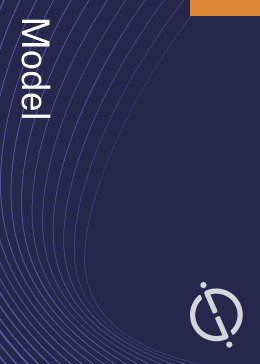KT-333 is a small molecule commercialized by Kymera Therapeutics, with a leading Phase I program in Cutaneous T-Cell Lymphoma;Peripheral T-Cell Lymphomas (PTCL). According to Globaldata, it is involved in 1 clinical trial, which is ongoing. GlobalData uses proprietary data and analytics to provide a complete picture of KT-333’s valuation in its risk-adjusted NPV model (rNPV). Buy the model here.

Discover B2B Marketing That Performs
Combine business intelligence and editorial excellence to reach engaged professionals across 36 leading media platforms.
The revenue for KT-333 is expected to reach an annual total of $28 mn by 2037 globally based off GlobalData’s Expiry Model. The drug’s revenue forecasts along with estimated costs are used to measure the value of an investment opportunity in that drug, otherwise known as net present value (NPV). Applying the drug’s phase transition success rate to remaining R&D costs and likelihood of approval (LoA) to sales related costs provides a risk-adjusted NPV model (rNPV). The rNPV model is a more conservative valuation measure that accounts for the risk of a drug in clinical development failing to progress.
KT-333 Overview
KT-333 is under development for the treatment of peripheral T cell lymphoma (PTCL), cutaneous T cell lymphoma (CTCL), large granular lymphocytic leukemia (LGL-L), Hodgkin lymphoma, small lymphocytic lymphoma (SLL), non-Hodgkin Lymphoma, natural killer cell lymphomas, T-cell lymphomas and solid tumors like colorectal cancer, non-small cell lung cancer, bile duct cancer (cholangiocarcinoma), kidney cancer (renal cell cancer), head and neck cancer and alcohol use disorder. It is administered through intravenous route. The drug candidate is a heterobifunctional PROTAC (proteolysis targeting chimera) which acts by degrading STAT3. It is developed based on Pegasus platform.
Kymera Therapeutics Overview
Kymera Therapeutics (Kymera) is a biopharmaceutical company that discovers and develops small molecule therapeutics for protein degradation. The company’s pipeline includes IRAK4 for the treatment of atopic dermatitis, hidradenitis suppurativa, macrophage activation syndrome, general pustular psoriasis and rheumatoid arthritis, IRAKIMiD for the treatment of MYD88 tumor, STAT3 for PTCL, LGL-L, CTCL and Solid Tumors. Kymera’s other pipeline includes MDM2 for Liquid and Solid Tumors. The company also utilizes Pegasus a drug discovery platform that allows the discovery of selective small molecule protein degraders against disease-causing proteins throughout the body. Kymera is headquartered in Watertown, Massachusetts, the US.
The company reported revenues of (US Dollars) US$78.6 million for the fiscal year ended December 2023 (FY2023), an increase of 67.8% over FY2022. The operating loss of the company was US$165.5 million in FY2023, compared to an operating loss of US$161.3 million in FY2022. The net loss of the company was US$147 million in FY2023, compared to a net loss of US$154.8 million in FY2022.
The company reported revenues of US$10.3 million for the first quarter ended March 2024, a decrease of 78.5% over the previous quarter.
For a complete picture of KT-333’s valuation, buy the drug’s risk-adjusted NPV model (rNPV) here.
Data Insights
From

The gold standard of business intelligence.
Blending expert knowledge with cutting-edge technology, GlobalData’s unrivalled proprietary data will enable you to decode what’s happening in your market. You can make better informed decisions and gain a future-proof advantage over your competitors.



